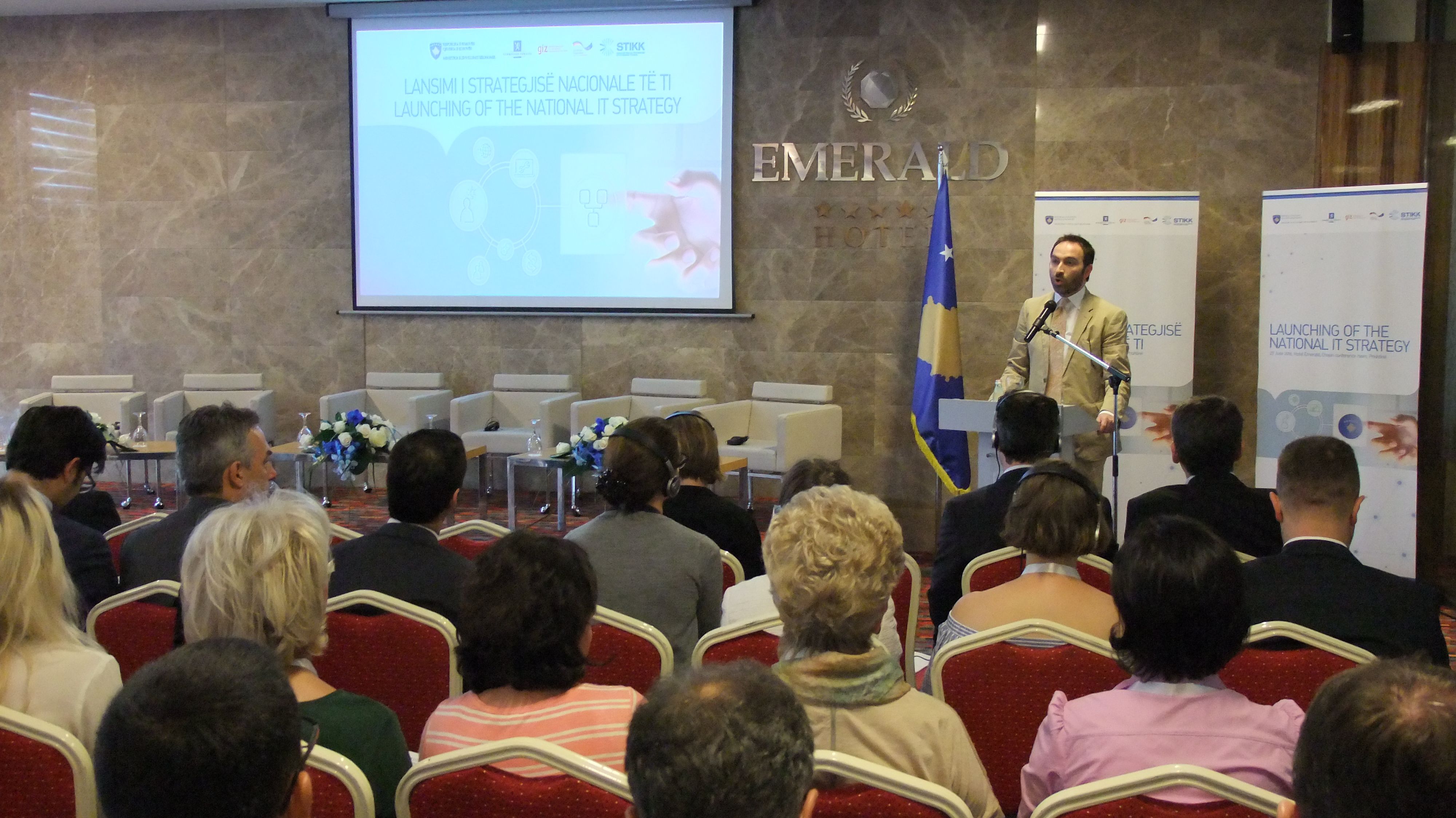Information Technology Strategy – a step towards digital economy
Prishtina, 27.06.2016 – Kosovo’s Information Technology Strategy clearly addresses the guidelines and responsibilities for all parties in the process, ensuring that the potential of Kosovo in providing IT services within Kosovo and beyond its borders affects the “Digital Transformation” of the country’s economy” – this was said today at the launch of the Strategy.
Present at the launch of the IT Strategy were the Prime Minister, Isa Mustafa, Minister of Economic Development, Blerand Stavileci, Ambassador of Norway in Kosovo, Ian Braathu, representative of the German Embassy in Kosovo, Henriette Kötter, representatives of other institutions of the country and ICT companies.
Prime Minister Isa Mustafa said that the potential of the digital economy can contribute significantly the economic growth and especially the field of employment, and they represent means of extraordinary growth of small and medium enterprises and as a result competitiveness, innovation, standardization, working skills cannot be imagined without digital economy.
He said that the government is committed to provide all opportunities to apply a digital revolution, encouraging existing businesses to undergo digital transformation and supporting more digital businesses in the country.
Meanwhile, Minister Stavileci said that the strategy not only paves the way for development of the electronic communications sector, but puts strong and solid foundations for a knowledge-based economy, an economy that moves towards a digital economy.
“Kosovo Strategy for Information Technology is based on 9 pillars and the main focus is to develop the domestic market, as well as foreign market, especially for companies that export services, including innovation and research” he said.
According to him, in addition to areas covered by MED, IT has enjoyed special attention, sometimes exceeding targets in terms of expansion of key projects, considering that this sector has a safe future.
Minister Stavileci also emphasized the project “digital economy of Kosovo” which is implemented jointly with the World Bank, and has three main pillars; digital infrastructure, digital education and digital businesses, adding that different partners have pledged support for the establishment of an ICT Fund.
From his part, the Ambassador of Norway, Ian Braathu, commended the Government of Kosovo for the development of this strategy, considering it a great achievement as a result of cooperation between the Government and the IT sector. He said STIKK is a very good example, not only for the Western Balkans but also for the Southeast Europe. This was a good partnership between the Government of Kosovo and the IT sector.
The representative of the German Embassy in Kosovo, Henriette Kotter, added they have supported this project believing that the IT sector in Kosovo has great potential to be expanded, and can contribute to increasing the competitiveness of Kosovo in the international market, promoting economic development and creating new jobs.
Elements of Kosovo’s IT Strategy were presented by the Deputy Minister of Economic Development, Besa Zogaj-Gashi and Lucas von Zallinger, GIZ Consultant.
Otherwise, the development of this strategy was made in cooperation with the private sector through STIKK (Association for Information Technology and Communication of Kosovo), universities and other ministries dealing with IT and with the invaluable support of GIZ and the Norwegian Embassy.

